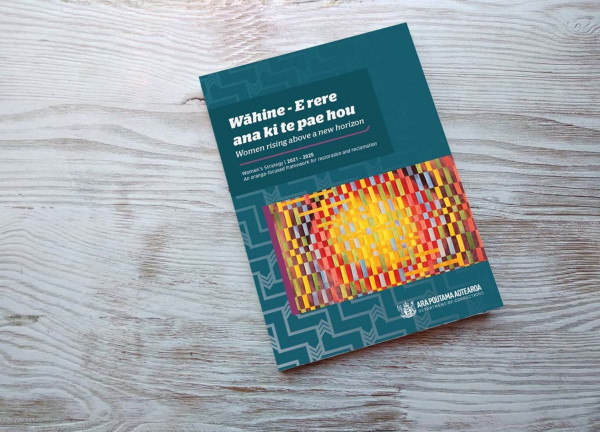26 August 2024
Supporting Trauma Informed Care

Many women in prison come from backgrounds where they have experienced trauma in their lives. In many cases, this trauma may have influenced their criminal offending. To get the best results with the women we work with, it’s important for us to take an approach with recognises this reality.
Staff in the Waikato and Bay of Plenty have recently received trained in Trauma Informed Care, supporting them to take a more holistic approach and better understand the women they work with.
The training is part of Wāhine - E rere ana ki te pae hou, our strategy to strengthen how we work with women in our prisons. The training aims to support staff to have a better understanding of trauma, how it presents and to enable them to be more confident working with those affected.
Capability Adviser Nathan describes it as helping to shift people’s mindsets to be more open and curious about someone’s behaviour.
“It’s about helping our staff so that when someone comes in, they are not just responding to the behaviour that’s happening in the room, they’re actually thinking deeper in terms of where the behaviour may have come from and some of the experiences that person may have gone through,” Nathan says.
The training was initially requested by our prison staff who wanted to learn more so they could be better practitioners, whether they be in front office in reception, probation officers, case managers, programme facilitators or leading those teams.
Ensuring the training was comprehensive and effective required collaboration between many different roles across Corrections including Kaupapa Māori supervisors, programme facilitators, psychologists, practice manager psychology and programmes, practice leaders and learning and development teams.
Topics in the training are wide-ranging and include guiding principles to a trauma informed approach, the importance of language, dealing with disclosures and self-care as a practitioner.
The training also has a strong focus on bringing together conventional and Kaupapa Māori approaches - weaving the two rivers together, including Mātauranga Māori perspectives of trauma. Staff are also supported to grow their understanding of Rongoā Māori, a holistic approach to oranga and wellbeing, grounded in traditional practices in te ao Māori.
“Rongoā Māori is about healing in different types of ways, including kōrero (talking) and karakia (prayer). As part of the training, we break down some of those and we get them to go and do some study and then we have a big group discussion,” says Charlene, Senior Adviser Kaupapa Māori Supervision. Rongoā is also intended to help support greater engagement in education, training, and rehabilitation programmes.
Charlene says that while the training helps staff to be a lot more empathetic about what’s going on for a person, it is important to emphasise that staff working at Corrections are not there to be the experts in working in trauma.
“For us it’s about understanding that there is trauma there, then finding the appropriate supports for the person to deal with the trauma.
It’s about encouraging people to think beyond just the person in front of us - because that person is a by-product of something much bigger.”
Ready to make a move?
Start your journey - check out the a list of our current opportunities then apply online today!